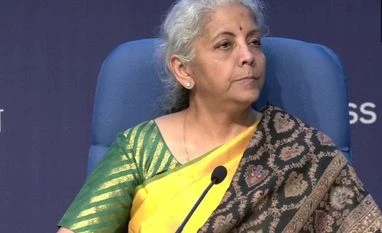Election on mind: Amid OPS push, bid to keep govt staff happy
Unimpressed Oppn says Budget has nothing for poor, unemployed
)
Explore Business Standard

Associate Sponsors
Co-sponsor
Unimpressed Oppn says Budget has nothing for poor, unemployed
)
Already subscribed? Log in
Subscribe to read the full story →

3 Months
₹300/Month
1 Year
₹225/Month
Renews automatically, cancel anytime

Over 30 premium stories daily, handpicked by our editors



News, Games, Cooking, Audio, Wirecutter & The Athletic

Digital replica of our daily newspaper — with options to read, save, and share



Insights on markets, finance, politics, tech, and more delivered to your inbox

In-depth market analysis & insights with access to The Smart Investor



Repository of articles and publications dating back to 1997

Uninterrupted reading experience with no advertisements



Access Business Standard across devices — mobile, tablet, or PC, via web or app
First Published: Feb 01 2023 | 9:12 PM IST